Forum Home > GMAT > Quantitative > Problem Solving (PS)
Events & Promotions
| Last visit was: 26 Jul 2024, 20:50 |
It is currently 26 Jul 2024, 20:50 |

Customized
for You
Track
Your Progress
Practice
Pays
08:30 AM EDT
-08:30 AM EDT
08:30 AM PDT
-09:30 AM PDT
09:55 AM PDT
-11:00 AM PDT
08:00 PM PDT
-09:00 PM PDT
05:55 AM PDT
-12:30 PM PDT
07:00 PM IST
-08:00 PM IST
09:00 PM IST
-10:00 PM IST
| FROM Stacy Blackman Consulting Blog: Do This if You Have No Extracurricular Activities |
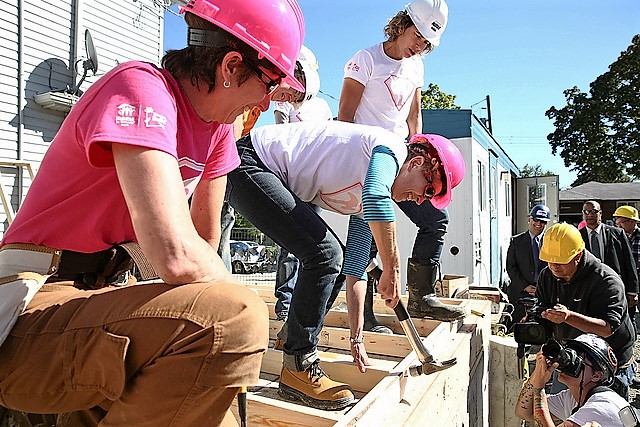 Are you applying to business schools in Round 1? Then the process of pulling your materials together will consume much of your life in the coming months as you focus on how to best position yourself. If you’ve taken on leadership roles in volunteer organizations or have actively engaged with a nonprofit you’re passionate about, make sure you play up that angle in your materials. But what if you’ve done nothing on that front? No volunteering, no extracurricular involvement — nada. Is your MBA candidacy doomed? Not necessarily. Admissions committees understand that it’s hard for some people to have meaningful involvement in an organization outside of work. This happens often with applicants whose jobs constantly keep them on the road. Or, maybe their typical workday doesn’t even afford them the opportunity for a full night’s sleep. We have seen compelling candidates get into top programs, even though they lack post-college extracurricular involvement. But, if you had no extracurriculars as an undergrad, either, that might become a red flag. You’ll leverage all facets of your life — not just what you’ve achieved on the job — to help your MBA classmates learn. What do you do outside of work?  On a bowling league? Parlay your passion for the pins into a compelling extracurricular. If you have no extracurricular activities to talk about, brainstorm other relevant things you could share with fellow students. Think along the lines of travel or cultural experiences, or even a family situation. What else are you passionate about besides your job, and how has that passion manifested itself? While it might look disingenuous to join a bunch of volunteer organizations in the months leading up to Round 1 deadlines, you could see if your employer has any community-focused committees or sponsors any local events that you could get involved with in the near future. Take heart. You still have several months to create a meaningful impact before the first-round application deadlines, even with limited free time. Main image credit: Flickr user Premier of Ontario Photography (CC BY-NC-ND 2.0) The post Do This if You Have No Extracurricular Activities appeared first on Stacy Blackman Consulting - MBA Admissions Consulting. |



| FROM Stacy Blackman Consulting Blog: H1B Visa Program Updates to Benefit MBA Students in the US |
 Higher education gives international students the chance to remain in the US long term. These students look to transition to the H1B visa for work en route to a green card. The number of applicants for the H1B visa has only continued to grow. Meanwhile, the number of total visas has remained the same. This demand-exceeds-supply issue has existed for many years, long before the current administration under President Trump. H1B policy changes are here The good news is the H1B visa program has been updated to benefit international graduate students, who will now effectively get two shots at approval. First, as part of a graduate student only pool, and then as part of the total pool. Students graduating from US colleges with master’s degrees (and other advanced degrees) will have a better chance of receiving an H1B visa under this new policy change, effective as of April 1, 2019. As we shared with Find MBA, we have seen some tougher scrutiny from this administration on H1B visa approval than in the past. Sometimes, it involves seeking additional confirmations and follow-ups, or unexpected visa declines. In particular, the administration wants to confirm that the courses students take align with the roles to which they apply. By definition, this makes them “specially skilled employees” for those roles. We expect to see employers increase MBA recruiting soon among internationals studying in the US as a result. As the latest GMAC Corporate Recruiter Survey noted, “Employers maintain a high level of interest for international hiring.” This holds true particularly in the consulting and technology industries. Companies continue to value an interesting and diverse cohort, with students from different backgrounds. H1B visa competition shapes MBA Admissions Business schools are adapting to the selectivity of this visa by focusing on admitting students they deem employable upon graduation. Admissions and career recruiting considerations have become almost inseparable at many programs. Big Tech (Amazon, Microsoft, Google) and the big three consulting firms (BCG, Bain, MCKinsey) have historically been strong supporters of international students and the H1B visa sponsorship. Specifically, four of the six high-profile U.S. tech companies – Amazon, Microsoft, Intel, and Google – were among the top 10 employers for approved H1B petitions. Still, some recruiting firms are showing increased diligence for new employees,. They want to avoid paying to onboard and train a new MBA recruit, only to have their H1B visa application denied months later. Strong economy allows for premier employer, title and salary We’ve witnessed improved MBA career placement this year due to the strong labor market. We’ve also seen students land internships or jobs at firms one tier higher than they originally thought. Naturally, jobs at premier firms such as McKinsey, Google, and Goldman Sachs will always remain competitive. With an MBA education, new recruits can fill the needs at these companies. Our clients have leveraged this advantage by securing multiple interviews and resulting offers –often across different jobs or industries. Multiple offers allow students to potentially negotiate salary components or other intangibles (office location, etc.). It allows soon-to-be MBA graduates to consider an array of options. They can really shape how they envision the next significant era of their life’s journey. Like any major life decision, there are risks and rewards ahead for MBA hopefuls. But the recent H1B visa program changes hold promise for internationals who value the MBA as their gateway to the US. The post H1B Visa Program Updates to Benefit MBA Students in the US appeared first on Stacy Blackman Consulting - MBA Admissions Consulting. |
| FROM Stacy Blackman Consulting Blog: Face Off: Stanford GSB vs Berkeley Haas |
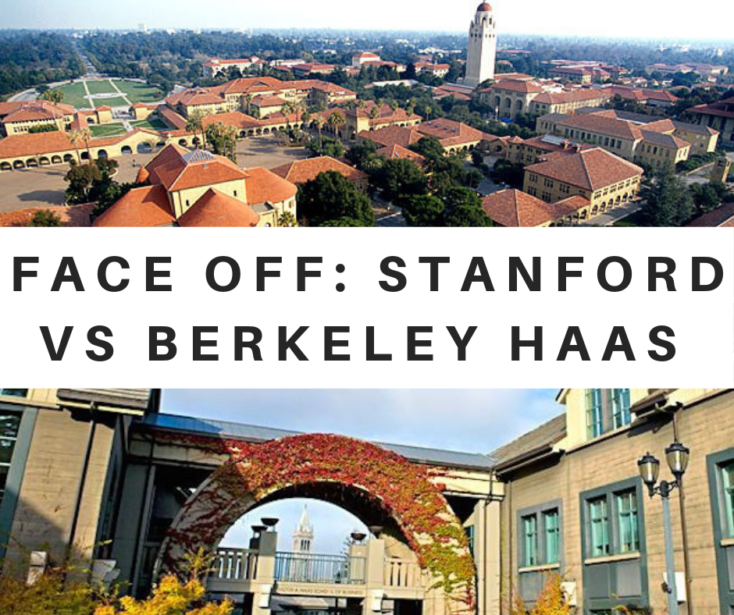 The school selection process for MBA applicants can seem overwhelming. With so many great business schools, how do you decide which one is right for you? In SBC’s new blog series Face Off, we tease out the strengths and differences between two similarly ranked b-schools. Plus, we’ll highlight noteworthy elements of their admissions processes. First item of business today: the Stanford MBA application versus the UC Berkeley Haas MBA application. How do the admissions requirements and selectivity compare between the pair? The Stanford Graduate School of Business is more selective and has the lowest acceptance rate of any MBA program. Their admissions requirements are comparable, with test scores, competitive GPA, rec letters and essays expected by both. Regarding essays, the Stanford MBA application prompts have remained the same for years: “What matters most to you, and why?” and “Why Stanford?” In contrast to the Stanford MBA application, the essay questions at UC Berkeley Haas School of Business have historically focused on personality and moments. For example, last season, one Haas application essay prompt was, “Tell us a six-word story that reflects a memorable experience in your life-to-date. Elaborate on why it is meaningful to you.” 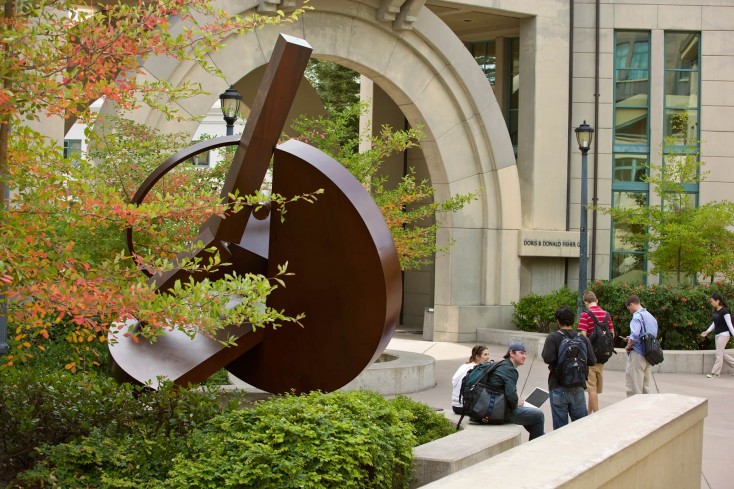 UC Berkeley Haas School of Business Previous application essay prompts for Haas were equally creative. Some years, Haas would ask about a favorite song. “When asked about their favorite song essay submission, one member cited, ‘Always Be My Baby’ by Mariah Carey—a football player described how he used it to pump him up before each game in the locker room. Another mentioned a very personal story about a song the candidate wrote for his fiancée,” shares a former Haas Admissions Officer at Stacy Blackman Consulting. How do the quality of the MBA cohorts compare, and what about the culture? “Both programs are known to be collaborative, with self-aware, well-rounded and inspired student culture,” says Stacy Blackman. Neither program is known for a hyper-competitive vibe, the way HBS or Wharton have been characterized. “I advise applicants to draw their own conclusions. I ask clients to visit the schools or engage virtually to get a sense of whether one would fit in,” shares a former GSB Admissions Officer on the Stacy Blackman Consulting team. “With lower acceptance rates and greater selectively, it’s likely GSB’s student culture and population allows for deeper intellectual exploration,” Blackman adds. What are the advantages of being based in Silicon Valley?  Advantages: It is no secret that the location of both Haas and GSB is ideal for goals in the technology arena. Studying in the center of Silicon Valley provide access to industry lecturers, case studies, team projects for local companies, on-site company visits and more. Silicon Valley is home to technologists, innovators, life science visionaries, and venture capitalists. The location can facilitate finding the right job for technology talents and interests. Caveats: Functions within the tech universe, such as entrepreneurship and venture capital, are more associated with brand/prestige of the MBA program than Silicon Valley itself. Haas’s employment reports lack data on entrepreneurs and venture capital placement specifically. Our clients would usually favor HBS, GSB, and Wharton (over Haas) for the arenas of entrepreneurship and venture capital. By contrast, GSB does report graduates into both entrepreneurship and venture capital, as we would predict because of its stronger brand. More than tech At the same time, “These career paths aren’t the only ambitions that Haas and GSB empower. For example, the Bay Area is a prime location for students aspiring toward international business. California serves as a gateway to South American and Asian economies, with many of the world’s global companies headquartered in the Bay Area,” says Blackman. Because Stanford is a private institution and Haas is not, does Stanford have more resources to dedicate to teaching, facilities, etc? 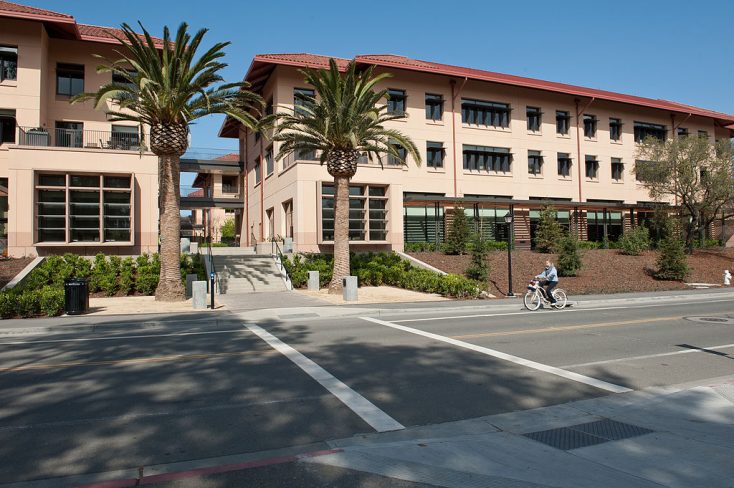 Stanford Graduate School of Business Stanford has far more resources, and it shows through its facilities, faculty caliber, etc. GSB also has less distractions, as it only has the two-year, full-time MBA program. Haas has part-time and EMBA programs, and it encompasses the undergraduates that are part of the Haas School. The GSB also has more faculty, approx 100, whereas Haas has around 80. These numbers are possibly higher at GSB because of the exclusive focus on its full-time, two-year MBA Program. Stanford’s MsX program (non-MBA) is a recent addition however; but it’s a small program. For a deeper dive into the teaching methods and curricula at both schools, check out this article from Poets & Quants. What are the key differences that prospective MBA students should consider? Career aspirations should be a key factor in deciding which program to pursue. A former Haas Admissions Officer on the Stacy Blackman team shared, “GSB is more entrepreneurial-focused. GSB is better recognized than Haas for its graduates who have become successful tech leaders and entrepreneurs. GSB is oriented more to the start-up, entrepreneurial focus. Haas has more graduates going into more traditional post-MBA roles (consulting, product management, finance).” How do the career outcomes between the schools stack up? There is a perception that they are both tech or entrepreneurial schools. Career placement data for both schools shows tech dominance, but there is also a very recent decrease in tech placement. Tech recruiting trends can be seen via Haas and GSB’s employment reports. The tech representation for Haas graduates has decreased to around 37%, which is still much higher than even MIT Sloan’s placement into tech over the years (which hovers closely around 30%) and is roughly double the placement of HBS graduates into tech industry. Similarly, GSB’s placement into the tech industry was consistently been between 30 and 35% for the years between 2012 and 2016, with the peak placement of 35% for the class of 2015. Like Haas, the most recent report for GSB shows a relative decrease recently; GSB is at around 25% placement into the tech industry as shown in its 2016-2017 employment report. That 25% is still much higher than HBS, Wharton etc., but overshadowed by MIT and Haas’s placement stats in technology for the same period. Final notes on each program The Haas School is known for its diverse and talented faculty, staff, students and alumni. They have created an innovative academic culture that stresses cooperative teamwork, entrepreneurship, a global point of view, and an emphasis on new ideas and fresh perspectives. “TRANSFORMATION” was a theme of the Adcom. The program focuses on developing Berkeley leaders. Haas believes in helping people find meaningful work. Unlike some other programs, Stanford’s GSB never publicly releases grades, keeping them a private matter between students and faculty members. The GSB offers a highly customized program. After a shared experience in the first quarter, students no longer have specific required courses, but select courses to meet their own set of distribution requirements. With the help of a faculty adviser, each GSB student creates a study plan to challenge and push themselves, tailored to their past experience level. *** We hope this deep-dive comparison between the Stanford MBA application and Haas application has given you helpful intel as you make your school selection decisions this season. Finally, please leave any questions you may still have in the comment section below. Stay tuned for more Face Off posts to come. The post Face Off: Stanford GSB vs Berkeley Haas appeared first on Stacy Blackman Consulting - MBA Admissions Consulting. |
| FROM Stacy Blackman Consulting Blog: The 411 on Recent Updates in MBA Admissions |
 If you plan to apply for business school next season, you’ll want to have a clear understanding of the MBA admissions landscape. We’ve seen several updates in MBA admissions over the past two years. Today, we’re taking a look at some specific questions we’ve fielded from various news outlets related to these changes. Why are business schools changing up their MBA admissions process? There are two main reasons driving recent updates in MBA admissions. First, MBA programs as a whole are constantly trying to improve what they do and how they do it. Secondly, admissions professionals look to maximize the amount of evaluative data they get from their applications. Ultimately, the admissions team works to provide candidates with a positive experience through all of their interactions with the program. There are just as many strong business schools out there as there are strong candidates. Business schools want to deeply vet candidates to find individuals who are the right fit for their program. The admissions team looks for candidates who convey enthusiasm and genuine interest. One of the best ways to discover this is through additional application requirements. This would include video essays, and more. In fact, we’ve seen an uptick in pre-interview questions and post-interview reflections lately. The focus of these updates in MBA admissions seems to center on more digital elements. Digital elements such as videos allow the admissions committee to see an applicant’s presentation and interpersonal skills. This helps them determine if you are confident, and if you have any communication faults. Programs want candidates to be authentic. They also want to evaluate an applicant’s creativity as well as their ability to think on their feet. This is also a way for them to see how candidates can handle an uncomfortable or awkward situation. They want to see how a candidate operates outside of their comfort zone. Many people hate to hear or see themselves on a video recording! With these updates in MBA admissions, schools continue to raise the bar on what is required for a complete application. Why are schools using video essays? The goal of using videos from an admissions standpoint is simply to make better decisions about which candidates are the strongest match with the program. This component demonstrates communication skills and the ability to think on one’s feet. In addition, it can help identify those applicants who, while not quite as strong on paper, may actually be the diamonds in the rough that enrich the learning experience for all. The new format also strengthens the written essays by demonstrating the candidate’s verbal/visual communication skills. The adcom has seen what you have going for you on paper. A video interview can give them a better sense of your personality. Also, it helps them judge whether the “real you” matches the impression you’ve built through your other materials. Interviews and other types of live and virtual presentations are playing an increasingly important role in the admissions process. You can learn more about SBC’s video interview prep package here. What makes a winning video essay? Aim to elicit a reaction that makes the adcom think, “We just have to meet this person!” Here are some video-specific tips: Prepare (and practice) succinct responses for all of the typical MBA-related questions: Why Program X, Why an MBA overall, Why now, What are your career goals, Summarize your career to date, and so on. Then practice by adding some “fun” questions and responses into the mix: Review the last book you read/movie you saw/TV show you watched; What is your favorite song and why; Where’s the best place you’ve gone on vacation, et cetera. Record yourself answering these questions. Have a trusted friend review your responses and tell you how you’re coming off. Tweak your style accordingly. The intention may be to move toward fewer barriers so that more candidates apply to their school. Yet, there is such a variety of required application materials for top schools that candidates applying to multiple programs still have an immense amount of work to do. It’s vital for MBA programs to garner as much information as possible from the application process. This is why we have seen the uptick in the trend of additional essays and reflections later on in the process. In reality, the only specific area in which we see an effort to accommodate applicants is the widespread use of the GMAC Common Letter of Recommendation. This form makes it easier for recommenders to do their part, making it less likely they will ask the candidate to write their own letters. Changing with the times, and the technologies, can only be of benefit to everyone. No matter what the application requirements are, schools, and admissions officers, haven’t changed their philosophy. They strive to use evaluation and decision processes that are as fair and impartial as possible and to admit those applicants who are the best fit for their program and its culture. Admissions officers look for ways to admit people – they love what they do – not for ways to exclude them. Methods of holistic review, which all top programs employ, really do offer every applicant a chance to put their best foot forward and to be judged on their merits. The post The 411 on Recent Updates in MBA Admissions appeared first on Stacy Blackman Consulting - MBA Admissions Consulting. |
| FROM Stacy Blackman Consulting Blog: Harvard MBA Deadlines: 2019-2020 |
 Are you already planning your application strategy for Harvard Business School? Then get out your calendar, because the Harvard MBA deadlines for the 2019-20 admissions season have been announced! ROUND 1 Application due: September 4, 2019 Decision released: December 10, 2019 ROUND 2 Application due: January 6, 2020 Decision released: March 31, 2020 2+2 Program Application due: Early April 2020 Decision released: Early June 2020 All applications are due at 12 noon EST on the day of the deadline. Therefore, Class of 2022 applications received after September 4, 2019 will be considered in Round 2. Consequently, applications received after January 6, 2020 will not be considered. Image credit: Chris Han (CC BY-NC-SA 2.0) The post Harvard MBA Deadlines: 2019-2020 appeared first on Stacy Blackman Consulting - MBA Admissions Consulting. |
| FROM Stacy Blackman Consulting Blog: Harvard MBA Essay: 2019-2020 |
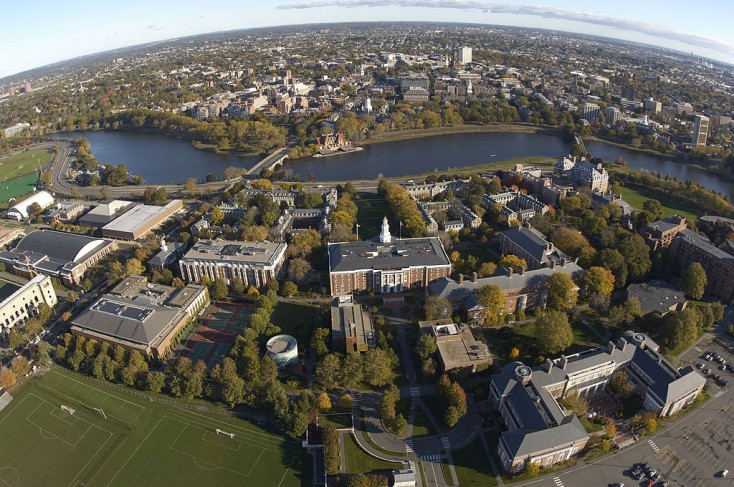 In addition to the HBS deadlines we announced earlier, the Harvard MBA essay for the 2019-20 admissions season has been confirmed. Once again, the essay question remains unchanged from previous years. Chad Losee, director of admissions and financial aid, posted the prompt on his blog earlier this week: Harvard MBA Essay for 2019-2020: “As we review your application, what more would you like us to know as we consider your candidacy for the Harvard Business School MBA Program?” (no word limit) The application will open up again in early June 2019, says Losee. Meanwhile, he encourages applicants to download the Application Guide to learn more about the requirements. The post Harvard MBA Essay: 2019-2020 appeared first on Stacy Blackman Consulting - MBA Admissions Consulting. |
| FROM Stacy Blackman Consulting Blog: 5 Ways to Combat Loneliness, a Lousy Side Effect of Working from Home |
|
This article originally appeared on the Blacklight, our new newsletter for professionals. No lie, working from home is the bomb—most of the time. You can totally stay in your pjs all day if that’s your jam. There’s no rush-hour commute to spike your blood pressure. You’re way more productive—13% more, according to this Stanford professor—than your office-bound peers. As long as you meet your deadlines and put in your time, as a WFHer you have total freedom to work when you want (night owls rejoice!), how you want, and where you want. Yup, working from home is amazing…until you realize you haven’t showered in three days or seen another human besides the FedEx guy. And there you have the one major downer of working from home: the potential for loneliness. Without those daily convos with colleagues around the office watercooler, you’ll need to get creative to combat the feelings of isolation commonly reported by those who WFH. Try these solutions on for size. Work in public sometimes.  All of those people on laptops at the corner coffee shop are definitely on to something. The free Wi-Fi, pleasant banter with the barista (who cares if she misspells your name?), and white noise atmosphere can replicate the energy of an office. As long as you’re making purchases once in a while, most coffeehouses are happy to have you. In fact, Starbucks is totally pushing its identity as a “third place” to go after home or work. Working in public at least some of the time can help you stay productive and stave off loneliness for the price of a tall latte. Take it next level with a shared work space. 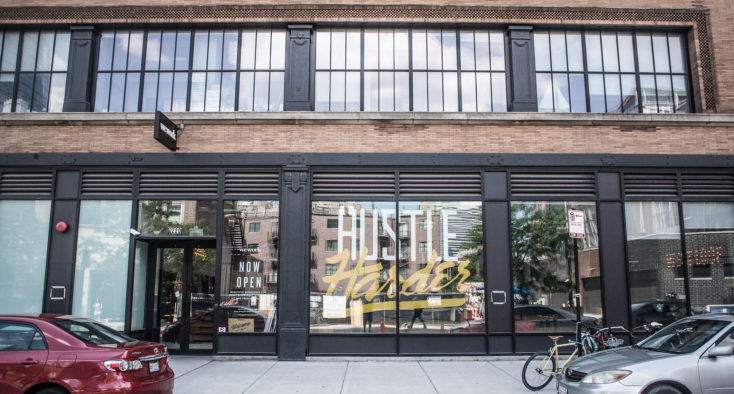 Image by Lisa Picard A big reason why people pay to work in a communal setting such as WeWork and NextSpace, as opposed to working from home for free, is the human interaction factor, says a trio of Harvard researchers in their article on why people thrive in coworking spaces. Here, you can interact with fellow “co-workers” as much, or as little, as you like. The researchers say those who use shared work spaces report feeling a strong sense of community identity. Apparently, just knowing there is “the potential for interactions when they desire or need them” is enough to keep loneliness at bay. “Too much autonomy can actually cripple productivity because people lack routines,” they add. “Coworkers reported that having a community to work in helps them create structures and discipline that motivates them.” Join a Slack community. For many people, maintaining professional relationships in an online community is key to feeling connected with your industry despite working remotely. Slack, the messaging app for teams, has something called Slack communities where people can congregate around a topic or even a specific location. There are communities for marketing, entrepreneurs, designers, developers, HR, social media, and fun stuff, too. Ometrics gives the lowdown on why everyone should join a Slack community, as well as an awesome list of popular Slack groups to get you started. Be sure to check out Work From, a community for remote and work-from-home professionals. This group provides conversations and insights about 21st century work/life. Plus, they promise to send you “A ‘hello and good morning’ from someone other than your cat.” No offense, Felix, but Slack has you beat in the “keeps me feeling tethered to humanity” department. Move your body.  Physical activity is a proven mood lifter. Whether you head to the gym for a workout— during the workday, without all those 9-5ers vying for the elliptical—or just go for a walk around the block. If you think you have too much work to do and can’t possibly fit another thing in, remember all of the mental benefits of exercise. Studies show that activity not only improves your physical health, but also your mental health and productivity. Basically, you should consider exercise part of your job. Also, consider adopting a loveable mutt who you can call your co-worker. After all, dogs are famous mood boosters. Companionship and forced walks—bam! Loneliness banished and #fitnessgoals achieved. Get radical and go nomad.  Image by Steven Zwerink One of the best things about working from home is the freedom it offers. But the “from home” part isn’t mandatory. In fact, mixing it up with a change of scenery can do wonders for your productivity and creative mind. If you have the freedom to work from anywhere in the world, why limit yourself to your living room? The key element is ensuring that you make enough money to cover your cost of living, whether you choose a different city in your country or decide to step it up several notches and go full-nomad abroad. You’ll see incredible sites, eat amazing food, and make new and interesting friends wherever you go. Check out Nomad Stack, which has a cool blog and offers all of the digital nomad resources you need to embark on your own adventure. The benefits of telecommuting far outweigh the drawbacks for most people, and loneliness doesn’t have to be an unavoidable trade-off when you work from home. Try any combination of these tips to avoid feeling isolation as a WFHer, and you’ll be golden. *** Did you enjoy this post? Our newsletter the Blacklight aims to illuminate with every dispatch that lands in your inbox. If you’re thirsty for guidance to help you slay it at work or as a student and move your goal posts closer, sign up today. The post 5 Ways to Combat Loneliness, a Lousy Side Effect of Working from Home appeared first on Stacy Blackman Consulting - MBA Admissions Consulting. |
| FROM Stacy Blackman Consulting Blog: Chicago Booth MBA Deadlines: 2019-2020 |
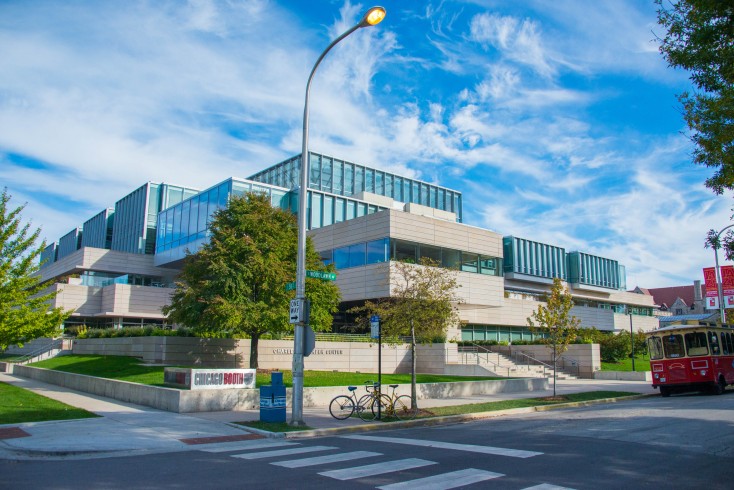 Are you already planning your application strategy for the University of Chicago Booth School of Business? Then get out your calendar, because the Chicago Booth MBA deadlines for the 2019-20 admissions season have been announced! Round 1 Application due: September 16, 2019 Decision released: December 5, 2019 Round 2 Application due: January 7, 2020 Decision released: March 19, 2020 Round 3 Application due: April 2, 2020 Decision released: May 21, 2020 All applications are due by 11:59 p.m. Central Time. Applications submitted after a deadline will automatically be considered in the next round, provided that all required materials are included with the application. For more information about applying to Chicago Booth, please visit the Booth admissions website. The post Chicago Booth MBA Deadlines: 2019-2020 appeared first on Stacy Blackman Consulting - MBA Admissions Consulting. |
| FROM Stacy Blackman Consulting Blog: Build your Business School Network as an Applicant |
 As most incoming MBA students know, the network you cultivate during business school is likely the most valuable part of the experience. Through the Internet and social media, you can get a head start and build your business school network as early as the application phase. That network can help you research schools, decide where to apply, and support you throughout your candidacy. In addition to making those two years a whole lot of fun, these relationships will also become a lasting set of connections that have the potential to change the course of your professional life forever. Here are three ways to build your business school network before you even set foot on campus. Be social media savvy: Business schools want to expand their follower base to share news, deadlines, and admissions events with prospective students. Follow your target MBA programs on Twitter, LinkedIn, and Facebook. School-sponsored student blogs, such as the Booth Experience blog from the University of Chicago, are another great resource. Use these online vehicles to learn about the school and to personally connect. Friend people who can be your peers. Once admitted, you can take all of this social networking one step further. Don’t attempt to friend any of the admissions folks on Facebook. But do feel free to follow them on Twitter. Engage by asking thoughtful questions about the admissions process, and learn all you can from them. Another way to get on the admissions team’s radar is by keeping them apprised of your progress with a tweet. For example, you could write something like: “Submitted my Round 1 application to @MichiganRoss today. Super excited for a chance to participate in the team-based interview.” If you don’t consider social media to be another way to build your business school network and strengthen your candidacy, you may be missing out on a great opportunity that other MBA applicants will most certainly take advantage of. Ask to be introduced to current students who share your interests: Visit campus and go out of your way to meet specific students in person whenever possible. If you’re interested in finance, ask someone to introduce you to the head of the finance club. Find out who is running the women’s association if you’re a female candidate targeting that school. Call the admissions office and ask to be connected to a student who is doing something you want to do, such as pursuing your dream entrepreneurial goals or concentrating on green business practices. Admissions should be able to hook you up with like-minded individuals who can help you understand how the school can serve your goals. Once you’ve made contact, these are great people to stay loosely in touch with as you make up your final list of schools. Sometimes, you can even name drop a bit in your essays to show you have really done personal research and gotten to know the program and its student body. Now is also a great time to reach out to alumni and current students that you already know. Reinvest in those relationships and talk to them about their experiences and how an MBA degree has enhanced their careers. Work MBA admissions events to your advantage: Go to as many business school admissions events as you possibly can. This is a great way to decide if a certain program is legitimately the right place for you by hearing students and alums speak, and by sizing up the way a school markets itself. As a bonus, attending an event shows your interest and that you have done your homework. It makes a school feel loved. Everyone likes to feel loved, even admissions committee members. It can be hard to stand out at these events swarming with people hoping to make a good impression. But sometimes you will have that meaningful conversation that can make a world of difference. Business schools often recruit local alumni to attend these events and help sell their program to prospective students. You may encounter people working in the same industry you hope to after earning an MBA degree. To build your business school network during such events, try to find two or three people who match up with your experience and goals. Learn how their business school experience transformed them personally or professionally. If the person is willing to speak with you outside of the event, ask for an informational interview. Over coffee or even email, you can learn more about how he or she successfully transitioned to their current career. It truly is the people, not the brochure bullet points, that bring a school to life. So the more person-to-person contact you have, the more informed you will be when it comes time to apply – and when you finally set foot on campus. The post Build your Business School Network as an Applicant appeared first on Stacy Blackman Consulting - MBA Admissions Consulting. |
| FROM Stacy Blackman Consulting Blog: Face Off: Dartmouth Tuck vs Yale SOM |
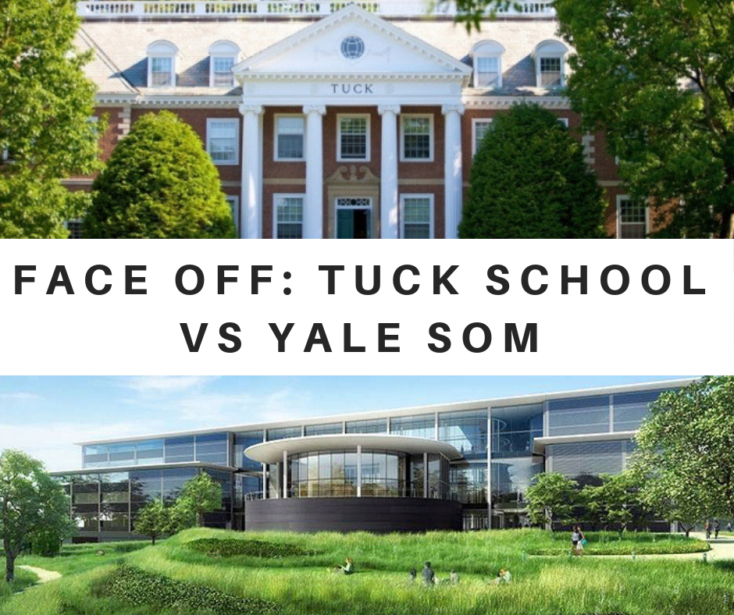 The school selection process for MBA applicants can seem overwhelming. With so many great business schools, how do you decide which one is right for you? In SBC’s new blog series Face Off, we tease out the strengths and differences between two similarly ranked b-schools. Plus, we’ll highlight noteworthy elements of their admissions processes. Let’s kick things off by looking at the differences between the Tuck MBA application versus that of Yale School of Management. How do the admissions requirements and selectivity compare between the pair? Selectivity is around the same for both, with acceptance rates around 20%, approximately. Yale SOM has only recently moved up in rankings, whereas Tuck has consistently ranked in the top ten for many years. We usually see candidates with traditional post-MBA career goals select Tuck over Yale. However, those whose post-MBA career goals fall into the non-profit/social impact area usually choose Yale SOM. Last summer, Dartmouth Tuck updated the evaluation criteria for the Tuck MBA application. Smart, nice, accomplished, and aware are the quintessential characteristics of a successful Tuck applicant.  “The two essays map directly to aware and nice,” explained Luke Anthony Peña, executive director of admissions and financial aid at the Tuck School, in an announcement regarding the essay updates. During the 2018-19 admissions cycle, one of the two required essays in the Tuck MBA application asked applicants to “Share an example of how you helped someone else succeed.” Meanwhile, the one required essay in the Yale SOM application last year aimed to give the admissions committee a better sense for what applicants care about in the world. How is the Tuck brand perceived? What about the Yale SOM brand? Historically, Tuck has been the more competitive business school with slightly higher quality. But, Yale has made tremendous gains over the years and consistently ranks as a top program. Yale also benefits from a stronger global brand recognition of the parent institution, which likely helps with international admissions numbers. How do the two curriculums and teaching methods compare? We usually classify Yale SOM as more of a progressive program, whereas Tuck is traditional. “From my experience, Yale has a more integrative learning environment where boundaries between disciplines are less rigid. Tuck, a far more traditional program, focuses on clearly defined lessons in marketing, finance, accounting, strategy, etc.,” shares Jed, a Tuck MBA graduate (also admitted to Yale SOM) and now a consultant here at Stacy Blackman Consulting. How do the two schools’ MBA cohorts compare in terms of quality and culture? “Tuck has strong emphasis on a collaborative culture. Students are smart, nice, diverse and very engaged in the community,” shares Maureen, a Tuck MBA graduate who worked at Tuck Admissions and is now a consultant at Stacy Blackman Consulting. Meanwhile, Yale is known to attract a more intellectual, progressive, and social justice-minded student body. How do the two schools’ locations compare? What impact might this have on the student experience and/or job opportunities?  Evans Hall, Yale School of Management Location is a key difference between the programs. For Yale, the city of New Haven is more urban, and the closest airport is Hartford. The New Haven community historically isn’t as community-oriented. Yale students will have more restaurant choices and cultural opportunities. Tuck is located in a picturesque, rural setting, close to many outdoor activities. Dartmouth Coach runs frequently to Boston and New York. Also, there are local flights to Boston and New York from Lebanon airport. “The geography/location of Tuck also lends itself towards an active and outdoorsy crowd that tends to love the seasons and the sports/activities that come with them. Tuck offers a vibrant arts and culture scene within Dartmouth College and the town of Hanover,” shares Maureen. 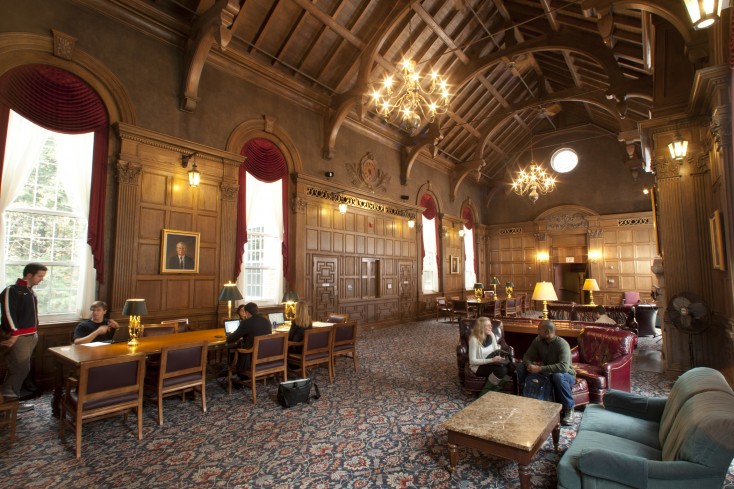 Stell Hall, Tuck School of Business Both Yale and Dartmouth students have a commute to New York or Boston for job opportunities. Yale benefits from its proximity to New York, which makes recruiting trips easier. While Tuck has a strong network in New York as well, Boston is the closest major city and tends to be the easiest access point for recruiting. What are the key recruiting differences between Tuck and Yale that an MBA applicant should consider? The outplacement statistics are comparable by industry– with approximately 50% of graduates from both programs placed into the traditional fields of finance and consulting. However, Yale SOM’s reputation is for a more eclectic, varied student body. Career placement at the SOM is modestly higher in nontraditional (e.g., nonprofit/ social sector) outplacement. Tech outplacement is slightly stronger at Tuck. Both schools have a nice, broad range of industry placement. Geographically, Yale places more into the Northeast region (54% at SOM vs 46% at Tuck) and Tuck places slightly more into the Midwest (9% at Tuck vs 3% at SOM). Any notable differences in the alumni networks? Yale SOM has a smaller alumni community than Tuck, as Tuck has been around for 70 more years than SOM. The quality of connections is as important as the number of alumni, though. Yale SOM alumni are engaged, actively on LinkedIn and in communities all over the world. Tuck is a highly community-oriented program that supports meaningful camaraderie in its classes and study groups. This atmosphere may be part of the reason Tuck reportedly has the highest annual giving percentages among leading business school alumni. *** We hope this deep-dive comparison between the Tuck MBA application and Yale SOM application has given you helpful intel as you make your school selection decisions this season. Finally, please leave any questions you may still have in the comment section below. Stay tuned for more Face Off posts to come! The post Face Off: Dartmouth Tuck vs Yale SOM appeared first on Stacy Blackman Consulting - MBA Admissions Consulting. |
| FROM Stacy Blackman Consulting Blog: Advice for Applicants from Over-Represented Buckets |
 If there’s one overarching trend we’ve seen in our nearly two decades of admission consulting, it’s the move toward greater diversity at the top MBA programs. Applicants from consulting and banking used to dominate at business schools in the past. Plus, most students were white males. Now, however, programs strive for diversity across several buckets: gender, ethnicity, industry, function or role, home country — even sexual orientation. What does that mean for applicants from consulting or financial services? Or white males, or Indian male engineers (two of the most over-represented demographic buckets)? It means that you must work hard to stand out. You’ll need to prove you have something valuable to bring to the table. In other words, you’re going to have to clearly demonstrate that what your classmates will learn from your personal and professional experiences outweighs the fact that you aren’t contributing to a more diverse environment in the traditional ways. We often meet with applicants who are shocked to hear that their “stats” won’t be enough. A high GPA and a high GMAT score are never bad things, of course, but they don’t guarantee admission, either. The MBA application process is a self-selecting one in many ways. Meaning, the people pursuing b-school are the ones who’ve done well in school, on tests, and in their careers so far. Stats don’t tell the whole story The majority of applicants deserve to get in “on paper.” But your stats only indicate that you can likely handle the rigor of their program. They don’t reveal anything about how you work with others. Nor do they speak to any leadership roles you’ve taken. More importantly, they reveal nothing of what motivates you or what your future goals are. Unlike undergraduate colleges, MBA programs heavily rely on students teaching each other. Schools expect high levels of spirited and interactive discussion in class, with students sharing their past experiences for the benefit of others. So while everyone who applies to business school should try to communicate the unique aspects of their candidacies that their classmates will learn from, it’s exponentially more critical that those from over-represented buckets do so. You’re going to want to pull from your volunteer, extracurricular and leadership experiences across all facets of your life. You might want to talk about places you’ve traveled and what you did or learned there. You might have a defining moment to share that led to your future career goals. You’ll want to highlight anything you are involved with at work that might relate to recent news headlines. The admissions committees love it when students can share firsthand experience with buzzy topics. Applicants from the “traditional” buckets still gain admission to top MBA programs across the country every year. If you’re in one of those buckets, there’s no reason to lose hope. But you should look objectively and realistically at your candidacy and perhaps widen the net of schools you’re considering. Try to figure out what your classmates would learn from you. Then, focus on incorporating those themes into your materials. You can do it! And if you need help crafting your story, sign up for a free profile analysis from SBC. The post Advice for Applicants from Over-Represented Buckets appeared first on Stacy Blackman Consulting - MBA Admissions Consulting. |
| FROM Stacy Blackman Consulting Blog: Columbia MBA Essays for 2019-2020 |
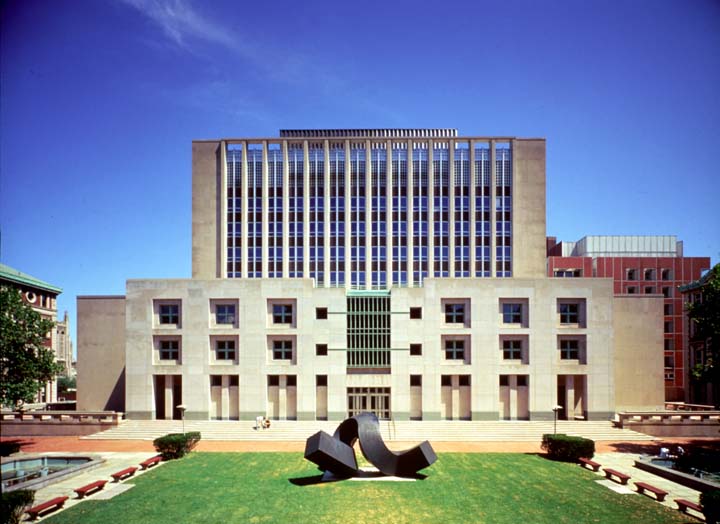 In addition to the deadlines we announced earlier, the Columbia MBA essays for the 2019-2020 admissions season are also available. This year, applicants to Columbia Business School must complete one short answer question and three essays. Short Answer Question: What is your immediate post-MBA professional goal? (Maximum 50 Characters) Essay #1 Through your resume and recommendations, we have a clear sense of your professional path to date. What are your career goals over the next 3-5 years and what, in your imagination, would be your long-term dream job? (500 words) Essay #2 Why do you feel Columbia Business School is a good fit for you? (250 Words) Essay #3 Who is a leader you admire, and why? (250 Words) Optional Essay: Is there any further information that you wish to provide the Admissions Committee? If so, use this space to provide an explanation of any areas of concern in your academic record or your personal history. This does not need to be a formal essay. You may submit bullet points. (Maximum 500 Words) *** The application release date is May 22, 2019. Please visit the Columbia Business School website for more information. The post Columbia MBA Essays for 2019-2020 appeared first on Stacy Blackman Consulting - MBA Admissions Consulting. |
| FROM Stacy Blackman Consulting Blog: Tuesday Tips: Harvard MBA Essay Advice for 2019-2020 |
 Harvard Business School has confirmed that the essay question for the class of 2022 remains unchanged from last year. The most challenging part of the Harvard MBA essay is remaining disciplined. With unlimited space to make your case, you may be tempted to compose a laundry list of everything interesting or impressive you have ever done. Harvard Business School has confirmed that the essay question for the class of 2022 remains unchanged from last year. The most challenging part of the Harvard MBA essay is remaining disciplined. With unlimited space to make your case, you may be tempted to compose a laundry list of everything interesting or impressive you have ever done.That urge could backfire. The admissions committee uses the essay to weed out those who aren’t a fit for HBS, as much as those who will move into the interview round for a closer look. Who is Harvard looking for? The admissions committee writes that “Habit of Leadership, Analytical Aptitude and Appetite, and Engaged Community Citizenship” are the common characteristics of a successful applicant. Class of 2022 Harvard MBA essay question: As we review your application, what more would you like us to know as we consider your candidacy for the Harvard Business School MBA Program? (no word count limit) A note on word count: HBS values brevity in essays. Don’t go overboard with a 2,000 word essay. Rather, focus on concise and clear writing and consider keeping this essay in the ~1,000 word range. Our clients have successfully composed essays anywhere from 500-1,300 words. If you find yourself on the upper end of that range, review your essay to cut any unnecessary words. Because there is no stated word count for the Harvard MBA essay, you do have the flexibility to take extra space if you are telling a compelling story that needs it. The goal of this essay is to know yourself, know HBS, and know how to match the two to demonstrate your fit for the school. Your first task should be to evaluate all of the other aspects of your candidacy – what is the story your resume tells? What do you think recommenders will say? How does your transcript communicate your skills, accomplishments and interests? Then you need to evaluate how to fill the gaps with the essay. Learn more about current HBS students Check out the incoming class profile for some idea of what a “typical” HBS student is like. We have found that both personal and career-oriented topics can work. In fact, most candidates tell more than one story in the essay. In the past, we have observed that successful HBS essays often demonstrate a core driving passion. HBS students are ambitious, motivated, and never boring. As you consider possible stories to tell in this essay keep in mind that HBS has always been highly focused on leadership and really loves candidates with a track record of leadership impact and future potential. If you can demonstrate a success trajectory that indicates upper management potential and a passion for impact in both business and society, use that material. Accomplishments have traditionally been a strong focus of Harvard MBA essays. An interesting and revealing accomplishments story would work well for part of this essay. This holds true particularly if your key accomplishments are not obvious when reading your resume or transcripts. All of that being said, the goal of this essay is to understand who you are. “Be genuine” advises the HBS admissions blog, and continues: “Yes, we want you to put your best foot forward, but be careful not to be so “polished” that we can’t get to know the real you.” Setbacks and lessons learned can be just as informative as success stories if the stories reveal more about what motivates and inspires you. A note on what not to do We see many applicants tempted to include “why HBS” type information in the Harvard MBA essay. Unlike most MBA programs, HBS has never asked “why HBS” in an application essay question. You might explain why you prefer the Case Method learning style, if appropriate. However, avoid lengthy explanations about how HBS is your top choice. Instead, use the space to provide detailed information about you and your strong candidacy. Looking for guidance on your HBS application? Contact us to learn more about Stacy Blackman Consulting. Image credit: Chris Han (CC BY-NC-SA 2.0) The post Tuesday Tips: Harvard MBA Essay Advice for 2019-2020 appeared first on Stacy Blackman Consulting - MBA Admissions Consulting. |
| FROM Stacy Blackman Consulting Blog: Duke MBA Deadlines for the 2019-2020 Admissions Season |
 Are you targeting the Fuqua School of Business in the upcoming admissions cycle? Grab your calendar, because here are the Duke MBA deadlines for the 2019-20 application season. Early Action: Application due: September 19, 2019 Decision released: October 28, 2019 Round 1 Application due: October 14, 2019 Decision released: December 18, 2019 Round 2 Application due: January 6, 2020 Decision released: March 18, 2020 Round 3 Application due: March 11, 2020 Decision released: April 20, 2020 A note to applicants about the Duke MBA deadlines: All deadlines are at 11:59 pm ET. The Early Action option is ideal for applicants who have completed their MBA research and have decided that this is the best program for them. If you need merit-based scholarship assistance, you may apply during Early Action, Round 1, Round 2, or Round 3. International Applicants: you must apply during Early Action, Round 1, or Round 2 for visa processing. Re-applicants: reapply during Early Action or Round 1. The 2019-2020 Daytime MBA application will be available in late-July. For more information, please visit the Duke Fuqua admissions website. The post Duke MBA Deadlines for the 2019-2020 Admissions Season appeared first on Stacy Blackman Consulting - MBA Admissions Consulting. |
| FROM Stacy Blackman Consulting Blog: Kellogg MBA Deadlines for the 2019-2020 Season |
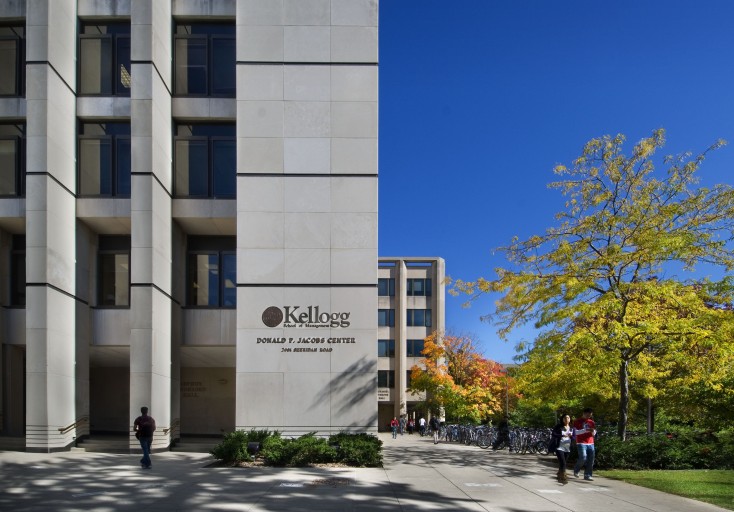 The Kellogg MBA deadlines for the 2019-2020 admissions season have been announced! They are as follows: Round 1 Application due: September 18, 2019 Decision released: December 11, 2019 Round 2 Application due: January 8, 2020 Decision released: March 25, 2020 Round 3 Application due: April 8, 2020 Decision released: May 13, 2020 In addition to announcing the Kellogg MBA deadlines, this week Kellogg School of Management also indicated it has some changes in store for the essays within the upcoming application. Here’s a preview of these updates from Kate Smith in admissions: “Our second written essay question will ask which values are most important to you. We hope to hear how these values have influenced you. Last year, this question focused on how an applicant has grown in the past, and how he or she intends to grow at Kellogg. Our change comes from wanting to understand what drives you when you get up every morning. How will this make you meaningful members of our community at Kellogg? How will these values shape the kind of leader you will become one day? You’ll also see a change to our first video essay question, which is shifting from an icebreaker to an opportunity for candidates to introduce themselves. We heard from our applicants that they were looking for opportunities to share more about their backgrounds, so this is your chance!” Stay tuned for the official MBA essay announcement when the application goes live in June. The post Kellogg MBA Deadlines for the 2019-2020 Season appeared first on Stacy Blackman Consulting - MBA Admissions Consulting. |
| FROM Stacy Blackman Consulting Blog: Alumnus Frank Sands Makes Darden its Largest Gift Ever |
 Image courtesy of UVA Photo/Andrew Shurtleff The University of Virginia Darden School of Business announced today it has received the largest gift in its 64-year history. Sands Capital Management founder Frank M. Sands Sr.’s (MBA ’63) new gift of $68 million will move the top-ranked business school forward in several key areas. The new Sands Institute for Lifelong Learning will enable innovation in the degree, non-degree and online spaces. It will help retain and develop Darden’s world-class faculty. The gift will transform Darden’s educational facilities in Charlottesville, Virginia. “The Darden School was a transformational experience for me, and I am an ardent supporter of its mission and values.” “I am a big believer in lifelong learning and that learning is enabled by great faculty,” said Sands. “I hope this gift will inspire others to give and hope that the School will continue to be a true force for good in the free markets and broader world.” Matching fund bolsters Sands’ impact  Frank M. Sands Sr. (MBA ’63) Combined with University matching funds, Sands’ gift delivers $82 million in total impact. That includes the $68 million new gift and $14 million in matching funds from UVA’s Bicentennial Professors Fund. The Board of Visitors launched the fund in 2017 to attract and retain top faculty and scholars. Sands’ generosity comes as Darden and the university prepare for the launch of Honor the Future, UVA’s $5 billion campaign. “Frank M. Sands Sr. and his family are helping propel Darden forward as we enter our third century,” said UVA President Jim Ryan. “This historically generous gift will allow Darden to reach even more students and continue to lead the way in global business education. I am incredibly grateful to Frank and the entire Sands family for their vision and generosity.” “We are humbled and grateful for the Sands’ longstanding support and this incredible new gift,” said Darden Dean Scott Beardsley. “Frank and his family continue the legacy of the School’s founders to propel the Darden School toward reaching the full potential of its mission to improve the world by inspiring responsible leaders through unparalleled transformational learning experiences.” New Institute Catalyzes Business Education Innovation, Establishes Professorships and Revitalizes Darden Facilities The $82 million in funding will transform Darden in various ways:
This gift builds on the $5 million he and his son Frank Sands made to build Darden’s new campus in the Rosslyn district of Arlington, Virginia. The UVA Darden Sands Family Grounds opened in March 2018. “Frank sets an incredible example for all Darden alumni,” said Elizabeth Weymouth, chair of the Darden School Foundation Board of Trustees. “We are inspired by his generosity and beyond grateful.” The post Alumnus Frank Sands Makes Darden its Largest Gift Ever appeared first on Stacy Blackman Consulting - MBA Admissions Consulting. |
| FROM Stacy Blackman Consulting Blog: Tips for a Killer MBA Recommendation Letter |
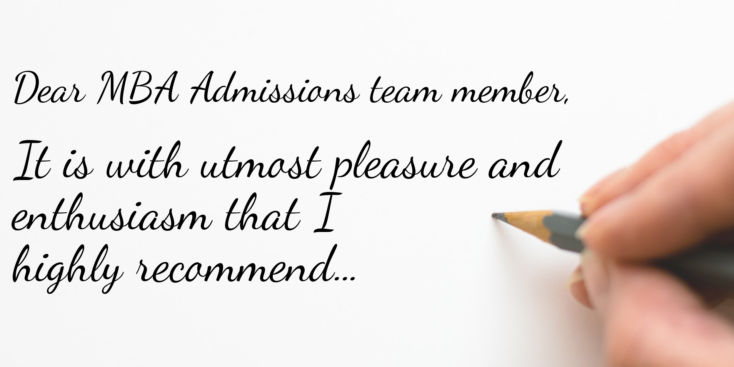 It might surprise you that many applicants don’t invest time and attention in their reference letters. Most applicants select their references, direct them to the proper forms, and hope for the best. You can influence the quality of your recommendations. When SBC clients ask for advice on choosing who should write their MBA recommendation letter, these are the key elements to keep in mind.
Weigh the pros and cons of the various recommender options and know that a range of perspectives is best. A good set of letters will feature the client from professional, personal, and interpersonal standpoints. Rather than submitting two highly duplicative recommendations, it can be more powerful to request recommenders who can share different perspectives/examples. It’s a bonus if the recommender(s) know the candidate across multiple areas of his life and can speak positively to them. Applicants often think they should choose the person in their organization with the loftiest title to write their reference letters. The truth is that a person with a fancy title who doesn’t know the applicant won’t be able to offer specific examples and anecdotes to support even the most generous platitudes. As with the client’s essays, without “reasons to believe,” the claims made in the reference letter, even when true, will be discounted or ignored. What makes a good MBA recommendation letter? Professionals are better. For top MBA programs such as Harvard Business School and the Wharton School, we favor professional recommendations. “They typically prefer two direct supervisors and it can be a risk when you cannot provide one from your current supervisor,” says a former HBS Admissions Officer on the Stacy Blackman Consulting team. “This isn’t always realistic, but it’s the preference. The only exception to this is for the 2+2 program. Here, faculty, advisors, heads of extracurricular programs, etc. are expected for at least one of them.” Stand out. Many recommenders—especially those unfamiliar with the MBA application process—think that if they simply sing your praises and repeat how great you are in various different ways, that will be enough. Unfortunately, it’s not. The best way for your recommenders to help you stand out from thousands of other highly qualified applicants is by painting a clear picture of who you are both professionally and personally. Standing out is especially crucial for traditional applicants from finance and consulting. “Use the MBA recommendation letter to show that an applicant is at the very top of their classes (rockstars!),” says a former Wharton Admissions Officer on the Stacy Blackman Consulting team. Specifics matter. Sharing details of how you contributed to projects or giving specific examples of how you interact with others or went above and beyond (including funny anecdotes or quips that give insight into your personality)—these are the things that make for a great MBA recommendation letter. How to ask a supervisor for a recommendation. Take a proactive approach to your reference letters. Sit down with each reference to let them know that a stellar recommendation letter is integral to your MBA admit chances and highlight the key attributes that the recommender should try to address. Possibilities: creative thinking, determination, focus, intelligence, charisma. Come up with at least one concrete example that you feel illustrates each characteristic. Definitely drive home the importance of going heavy on the examples! What should applicants do if they’re worried they don’t have enough quality recommenders? Recommender quality does matter. Typically, only two recommender letters are expected. If the applicant doesn’t have two quality letters, it’s possible the applicant is just overly-worried. Often, the letters can be done in the quality fashion that top MBA programs seek, but the applicant just needs reassurance. If the letters are truly poor quality, we encourage the applicant to cast a wider net for MBA programs. They might also need to reconsider their recommender choice, and/or delay an application season. A report suggests business schools are clamping down on excessive recommender “coaching.” How far can candidates go in preparing their recommender? Attributes and examples are entirely appropriate as ways to prepare recommenders. We discourage our clients from writing recommender letters for ethical reasons, and because their own voice is often transparent within the materials. For more on the MBA recommendation letter topic, check out my prior post for US News & World Report, 5 Don’ts for Managing MBA Recommenders. The post Tips for a Killer MBA Recommendation Letter appeared first on Stacy Blackman Consulting - MBA Admissions Consulting. |
| FROM Stacy Blackman Consulting Blog: Tuesday Tips: Columbia MBA Essay Tips for 2019-2020 |
 Columbia Business School has released the application and essay questions for candidates beginning at the MBA program in 2020. These essay questions have been updated for this year. The new MBA essay questions include a new question about leadership and your fit with Columbia Business School. Columbia asks you to choose a leader you admire, which could be anyone from Melinda Gates to Columbia professor Bruce Craven‘s choice, Sansa Stark from Game of Thrones. What is the admissions team looking for in Columbia MBA applicants? We have heard from the MBA admissions committee at CBS that authenticity is key. The committee is looking for candidates who are a great fit for the program. Another aspect is the academic background to handle the rigor of Columbia. Additionally, desire to attend Columbia is also an important part of the Columbia MBA application process. Columbia is a fast-paced program in a fast-paced city. The kind of MBA student who is a good fit for Columbia and its setting in New York City will be those that plan to take full advantage of the unique opportunities offered by the setting.  It’s up to you to prepare your case for admission with thorough research into the school. To accomplish this, speak to current students, alumni and research the classes and faculty at the school to understand the full offering at Columbia. Columbia is looking for students who have big plans for their lives, MBA or not. Therefore, before you get started with this set of essays it will be helpful to brainstorm your career objectives, strengths and weaknesses, and to think about your overall future dreams. Columbia offers several flexible options for admission, from full time MBA programs starting in the Fall, to a January entry session and an excellent executive MBA program. Columbia also offers an early decision option for candidates that are committed to attend the school. The Columbia admissions cycle is rolling, so the earlier you submit your application the earlier you will receive feedback. We recommend you try to submit your application as soon as possible, while maintaining high quality. Stumped by the Columbia essays? Contact Stacy Blackman Consulting to learn how we can help with MBA admissions consulting. Short Answer Question: What is your immediate post-MBA professional goal? (50 characters maximum) Examples of possible responses: “Work in business development for a media company.” “Join a strategy consulting firm.” “Launch a data-management start-up.” This is a deceptively simple question that requires you to condense your career goals into one clear career vision statement. As part of the question Columbia provides a few examples, which are concise and to the point. If your goal is to work at an investment bank after graduation you could always just say: “Work in finance.” To try to add a bit more detail, consider adding a little more color. Something like: “Work in real estate finance for a private equity firm” tells the admissions committee far more about your interests and goals than just “work in finance” and sets the tone for the first essay. Essay 1: Through your resume and recommendations, we have a clear sense of your professional path to date. What are your career goals over the next 3-5 years and what, in your imagination, would be your long-term dream job? (500 words) This a question that drives at your short- and long-term goals and plans. The word “imagination” conjures up your aspirational dreams, not just your practical plans. Therefore, those who seek a top tier MBA at a school like Columbia have big dreams. You will be exposed to people and opportunities that will expand your horizons. Think about your true passions, and feel free to explore your big dreams. As you talk about your future you may need to refer to your past career and personal experiences. As you consider what to say make sure you are citing only relevant examples from your career. Also, think about the experiences you can describe that were truly pivotal and can support your future goals. Your goals should have some logical progression from your past, but you can (and should!) show you plan to change and adapt. 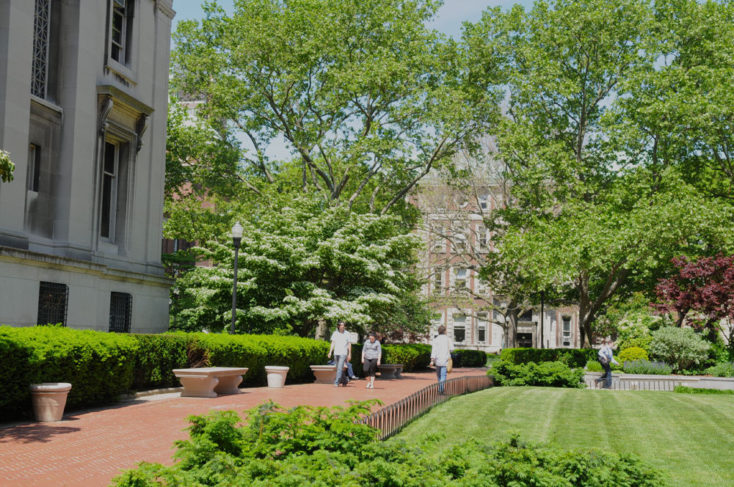 For example, perhaps you want to be a general manager of a company or division, and right now you have been working primarily in marketing. Subsequently, you might spend your time at Columbia learning about finance and strategy, being part of consulting projects and interning at a start-up to round out your experience and start on your general management path. Most importantly, Columbia wants to know who you are and how you are different from other applicants. Don’t try to be an ideal applicant, instead reveal your real personality, motivations, goals, and plans. Essay 2: Why do you feel Columbia Business School is a good fit for you? (250 words) This essay question is revised for this year’s application. In prior years Columbia has posted a video about Columbia’s location in New York city, and Columbia’s access to industry leaders in industries including finance, media, fashion and technology. Though this question does not ask you to watch a video and respond, thorough school research will help you answer the question well. The best way to research a school is to visit, talk to current students, and attend classes. If you are unable to visit Columbia before you submit your application, see if you can network with alumni and research the school online. The question posed here is how will you, specifically, benefit from the opportunities unique to Columbia? Will you take classes from an industry expert you admire? Intern at a target company or within an industry that interests you? What other resources in New York City or within Columbia are interesting to you? Columbia takes advantage of the location by employing adjunct professors from industry, encouraging internships during the school year for MBA students, and frequent lectures and mentoring from executives in various businesses.  You might mix personal and professional interests in this topic. You could emphasize either one of those angles depending on the answers you present to the other core questions. Specifics, specifics and specifics help you set yourself apart with this essay. Know yourself and know the school. As you address this question make sure your answer is tailored to your individual goals for learning and career along with your knowledge of Columbia’s academic and professional opportunities. Essay 3: Who is a leader you admire, and why? (250 words) This essay question is new for the class entering in 2020. In prior years Columbia asked for a team failure, while this question focuses specifically on leadership. The type of leader you admire will reveal what you are working towards in your own leadership development. There are many different types of leaders, and endless ideas about which type of leader is best. One leadership filter is from the business classic by Jim Collins, “Good to Great.” Collins describes a Level 5 leader, who is motivated by an organization and its cause, not by personal gain. A Level 5 leader exhibits a mix of personal humility and persistence. Level 5 leaders are not the only kind of leader that is effective, so consider some leaders you have read about, worked with, or admired and why. Once you have chosen your admired leader, consider why you chose this person. What are the attributes that you particularly appreciate? Does this leader know people within the team on a personal level? Connect your work with the organization’s purpose? Or persist despite overwhelming odds? Describe what you admire and why that quality is particularly appealing to you. Maybe because you are working on those qualities yourself, or because you share some of the same qualities and want to use those strengths. Optional Essay: Is there any further information that you wish to provide the Admissions Committee? If so, use this space to provide an explanation of any areas of concern in your academic record or your personal history. This does not need to be a formal essay. You may submit bullet points. (Maximum 500 Words) Note that this question is completely optional and you do not need to answer if there is nothing more that needs to be communicated. If you do choose to write an optional essay, we recommend keeping this essay brief. Focus only on specific areas of concern. These may be lack of demonstrated quantitative abilities, lack of a recommendation from a current supervisor, gaps in work experience, or particularly low grades. It is best to explain the issue factually and succinctly, then explain how you have addressed the issue. Make sure to explain why it should not concern the admissions committee in terms of your aptitude for the program and studies. The post Tuesday Tips: Columbia MBA Essay Tips for 2019-2020 appeared first on Stacy Blackman Consulting - MBA Admissions Consulting. |
| FROM Stacy Blackman Consulting Blog: Face Off: UCLA Anderson vs USC Marshall |
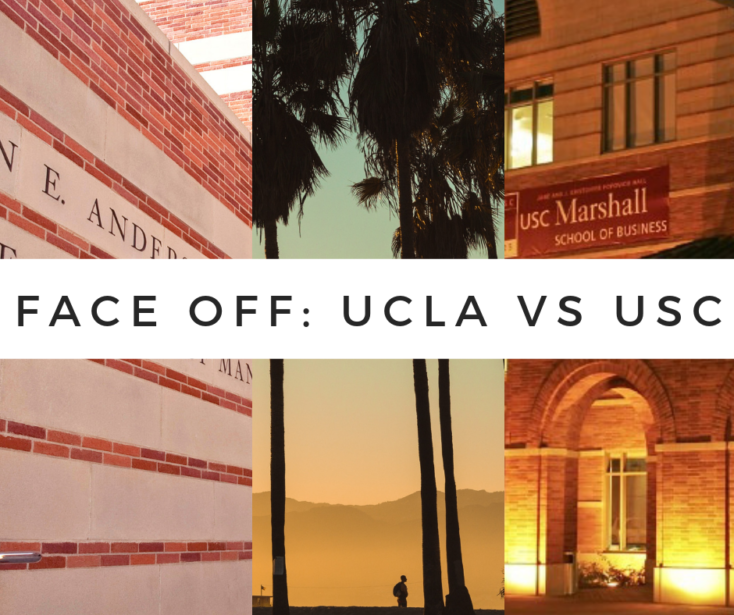 The school selection process for MBA applicants can seem overwhelming. With so many great business schools, how do you decide which one is right for you? In SBC’s blog series Face Off, we tease out the strengths and differences between two similarly ranked, or located, b-schools. Plus, we’ll highlight noteworthy elements of their admissions processes. Let’s kick things off by looking at the differences between the UCLA MBA application versus that of USC Marshall School of Business. How does the UCLA MBA application and admissions process compare with that of USC Marshall School of Business? GPA/GMAT averages are notably higher and weigh more heavily in the UCLA MBA application. In theory, USC Marshall School of Business should be more flexible, with higher acceptance odds and lower ranking. Practically however, there are unusual aspects to the USC Marshall application that have proven that USC admissions can actually be harder than UCLA Anderson School of Management. Applicants need to convince USC admissions that they are a good candidate based on test score, GPA and a couple of essays. Unlike the UCLA MBA application, USC does not require or accept recommendation letters. Also, it will only interview candidates by invitation. These parameters can make it difficult for some applicants to gain an admit. Due to this, we have seen several cases where clients were admitted to Anderson but denied at USC. Or, admitted to a top 20 program such as UT Austin but denied at USC. If given the choice of two admits, our clients will almost always select the higher-ranked program. What advantages does Los Angeles give both schools? Los Angeles, also nicknamed Silicon Beach, has become a coveted tech business hub. The region has seen a rise in tech companies large and small, such as Facebook, Google and Snapchat, which have coastal offices in Santa Monica, Venice or Marina Del Rey. Unlike students attending MBA programs on the East Coast, Angelinos don’t have to deal with any polar vortexes. The excellent weather and beach side aspects of Los Angeles allow for an ideal quality of life. What are the key differences between them that an MBA applicant must consider? Class Size: USC has a smaller cohort at 208 relative to UCLA, which is 370. Stats: GPA/ GMAT averages are notably higher for UCLA. Marshall will be more flexible, with higher acceptance odds. Alumni Network: The USC alum network is very strong. Local employers are fiercely loyal and eager to recruit Marshall grads. The strength of the “Trojan family” affords benefits to Marshall grads that its counterpart, Anderson, can’t seem to match at the same level. Location within LA: UCLA is located in West Los Angeles, an upscale area surrounded by high-end residential homes with sprawling hills and lush greenery, the beach, and the college town of Westwood Village. By contrast, USC is in urban downtown Los Angeles, near areas that aren’t as upscale, although downtown LA is seeing a gentrification. How do the career outcomes between the schools stack up? USC Marshall is stronger in the traditional career paths of consulting and finance. Anderson, meanwhile, is stronger in tech recruiting. Marshall Consulting 30% Financial Services 28% Tech 16% Anderson Consulting 21% Financial Services 18% Tech 30% How do the two schools’ MBA cohorts compare in terms of quality and culture? The quality and culture are comparable, in part because those who opt for a LA-based MBA program enjoy the lifestyle benefits that apply to both programs. While the rankings show UCLA as higher than USC, SBC clients have reported over the years that they are VERY satisfied with their Marshall education and have gotten the jobs they wanted upon graduation from USC. How do the two curriculums and teaching methods compare? The schools have comparable curricula. Lecture-style learning makes up roughly half of the instruction for both programs. Marshall is at 48 percent and Anderson School of Management at UCLA is at 40 percent. The remaining teaching methods include experiential avenues such as case method, team challenges, simulations, field work and extracurricular activities. *** We hope this comparison between the UCLA MBA application and MBA experience versus USC Marshall has given you helpful intel as you make your school selection decisions this season. Finally, please leave any questions you may still have in the comment section below. Stay tuned for more Face Off posts to come! The post Face Off: UCLA Anderson vs USC Marshall appeared first on Stacy Blackman Consulting - MBA Admissions Consulting. |

|
|